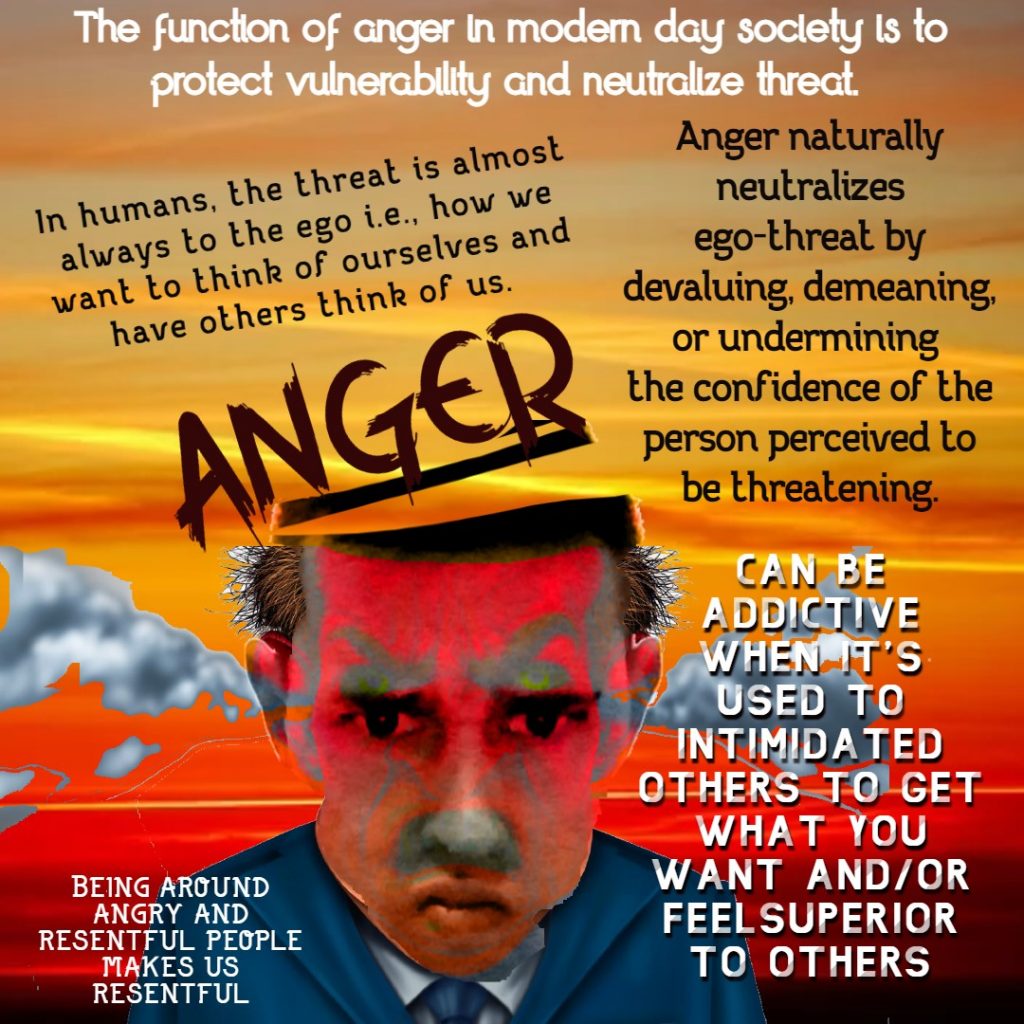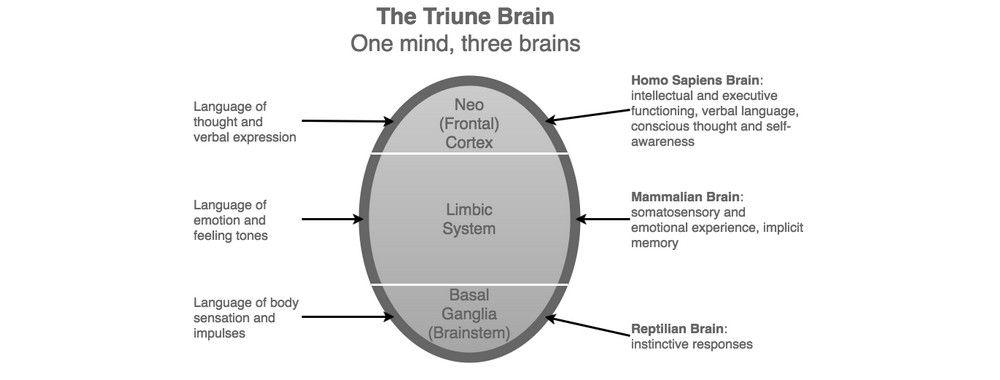Retrieved from Issue 346 of Institute Inbrief 20/01/2021
Paranoia: Definition and levels
When a person believes that others are “out to get them”, trying to stalk or harm them, or paying excessive attention to them for no reason, they may be experiencing paranoia. Occurring in many mental health conditions, paranoia is most often present in psychotic disorders. It involves intense anxious or fearful feelings and thoughts, most often related to persecution, threat, or conspiracy (Mental Health America, n.d.). It can be a symptom of illnesses such as schizophrenia, brief psychosis, paranoid personality, psychotic depression, mania with psychotic features, delusional disorders, or substance abuse (chronic or momentary) (Barron, 2016).
Mental health experts have identified three levels of paranoia:
- Paranoid personality disorder (PPD): Characterised by odd or eccentric ways of thinking, PPD involves an unrelenting mistrust and suspicion of others when there is no reason to be suspicious. It is one of the personality disorders in the DSM-5’s Cluster A, along with schizoid and schizotypal personality disorders. Thought to be the mildest form of paranoia, a person with PPD may still be able to function in relationships, employment, and social activities. The onset is typically in early adulthood and is more common in men than in women.
- Delusional (paranoid) disorder: Found in the DSM-5 chapter, “Schizophrenia spectrum and other psychotic disorders”, this is a condition in which an individual holds one major false belief or delusion; it will often be an implausible but not bizarre delusion. A delusional disorder typically occurs without any other signs of mental illness. So a person might think that others are talking behind their back if they have a persecutory delusion, or believe that they need immediate medical attention for a (non-existent) medical problem if they have a somatic delusion. This condition is slightly more common in women than men.
- Schizophrenia with bizarre delusions: People with this condition do not function well in society and need consistent treatment (Sunrise House, 2018; WebMD, 2018).This is the most severe form of paranoia, involving bizarre delusions without basis, such as that aliens are trying to abduct them, or that an unseen enemy is removing their internal organs and replacing them with others’ organs.
This article is about Levels (1) and (2), the paranoid personality disorder (PPD) and delusional disorder, which you may encounter more commonly, either in your client or the client’s partner.
Identifying paranoia
We have several options for finding out what characteristics should be called “paranoid”: we can assess how we experience the person — how we describe them and what they evoke in us — and/or we can run with DSM-5 descriptions, which outline the clinical symptoms we can observe specifically with the paranoid personality disorder and delusional disorder. Let’s do both.
Descriptions of the paranoid person
Joe Navarro, who has written extensively about mental disorders, asked those who had either lived with or been victimised by paranoid personality types to describe this personality type from their experiences. Here is the list of some of their words:
“Angry, anxious, apprehensive, combative, complainer, contrarian, critical, delusional, demanding, difficult, distrustful, disturbed, eccentric, fanatic, fearful, fixated, fussy, guarded, hard-headed, inhospitable, intense, irrational, know-it-all, menacing, mentally rigid, moralistic, obsessed, odd, offensive, opinionated, sensitive, peculiar, pedantic, quarrelsome, questioning, rigid, scary, strict, stubborn, suspicious, tense, threatening, tightly-wound, touchy, unforgiving, unhappy, vindictive, wary, watchful, withdrawn” (Navarro, 2016).
What they evoke in us:
Experiencing a relationship with someone described by such intense words as those above cannot fail to bring forth a reaction in us. Laurel Nowak (2018) outlines the common feelings evoked by paranoid individuals in those with whom they are in relationship. She talks about: “feeling weighed down, negative, stressed, isolated from the people and activities you used to enjoy, and like you’re walking on eggshells”. Some have noted that it can feel to the other person like they are not being seen — ever — for who they truly are. The exaggerated negative spin on events or in response to statements occurs in the context of relating which lacks tenderness, humour, or comfort (Navarro, 2016). While these authors are describing feelings evoked in intimate relationships with paranoid individuals, they could have been talking about how therapists feel when faced with a client with this condition. Dealing with such a person eats away at the most robust sense of happiness and self-esteem. Here are the DSM-5 symptoms.
Paranoid Personality Disorder: DSM-5 symptoms description
According to the DSM-5, there are two primary diagnostic criteria for Paranoid Personality Disorder, of which Criterion A has seven sub-features. Four of these must be present to warrant a diagnosis of PPD:
Criterion A is: Global mistrust and suspicion of others’ motives which commences in adulthood. The seven sub-features of Criterion A are:
- Belief others are using, lying to, or harming them, without apparent evidence thereof
- Doubts about the loyalty and trustworthiness of friends and associates
- Inability to confide in others due to the belief that their confidence will be betrayed
- Interpretation of ambiguous or benign remarks as hurtful or threatening
- Holding grudges (being unforgiving of insults, injuries, or slights)
- In the absence of objective evidence, belief that their reputation or character are being assailed by others; retaliation in some manner
- Being jealous and suspicious without cause that intimate partners are being unfaithful.
Criterion B is that the above symptoms will not be during a psychotic episode in schizophrenia, bipolar disorder, or depressive disorder with psychotic features (American Psychiatric Association, 2013).
Delusional Disorder: DSM-5 definition and types
According to the DSM-5, this condition is characterised by at least one month of delusions but no other psychotic symptoms. Delusions are false beliefs based on incorrect inference about external reality that persist despite the evidence to the contrary; these beliefs are not ordinarily accepted by other members of the person’s culture or subculture. In delusional disorder (a moderate level of paranoia), a person experiences non-schizophrenic (i.e., not bizarre) delusions, such as that they are that they are being spied on. Because only thoughts are affected, a person with a delusional disorder can act normal and function in everyday life, although they may display paranoia or other symptoms related to their delusion. The five types of delusions people with this disorder have are:
- Erotomanic, where there is a belief that a person with higher social or financial standing (such as the president or a movie star) is in love with them; it can lead to stalking and obsession.
- Grandiose, involving the false belief that the person has a special power or ability not shared by anyone else (such as that they are extremely lucky and will always win at the casino).
- Jealous: a mistaken belief that a current or former loved one is unfaithful or even harmful. Paranoia about the loved one’s words or actions can be a symptom of these delusions.
- Persecutory, in which the common sense of the paranoia is that someone is out to get the individual, because the person believes they are being threatened, mistreated, or that they will be harmed in the future.
- Somatic: a delusion in which the individual believes that they have an illness, disability or physical defect (Sunrise House, 2018; Mental Health America, n.d.; Bourgeois, 2017).
Treating and coping with paranoia
For the therapist
First, we must note the common advice: a person suffering from either PPD or a delusional disorder needs to seek professional help, although most such individuals do not believe that they are paranoid; rather, they think they are perceptive, noticing things that no one else sees. In this sense, it can be difficult to get such a person to therapy, as the condition tends to be ego syntonic. If such an individual turns up in your therapy rooms, however, note that a referral to a medical doctor is in order to determine if medication is needed.
Medication generally is not a major focus of treatment for PPD; therapy is. However, medications, such as anti-anxiety, antidepressant, or anti-psychotic drugs, might be prescribed if the person’s symptoms are extreme, or if he or she also suffers from an associated psychological problem, such as anxiety or depression (WebMD, 2018).
With delusional disorders, the diagnosed individual begins a combination of medication and psychotherapy. The anti-psychotic medication helps the individual improve enough to be able to understand reality and the need for therapeutic help. In milder cases, the individual may receive anti-anxiety medications or anti-depressants, which allows them to undergo therapy, where they learn coping skills, how to recognise delusions as false, and how to manage stress or difficult feelings. Hospitalisation may sometimes be indicated to stop the person from harming themselves or others during violent delusions (Sunrise House, 2018).
As the condition affects the client’s thought patterns and beliefs, it can be worked with effectively using cognitive behavioural therapy, which transforms the unrealistic, maladaptive thoughts by replacing them with more helpful, realistic adaptive thoughts. In addition, some therapists have observed that psychodynamic work, such as object relations, can help paranoid clients look into reasons for becoming mistrustful and suspicious which arise from early childhood relationships (Everyday Health, n.d.).
You might be asking, “Wait a minute; chief symptoms are a tendency to be suspicious and an inability to trust. How, then, can a therapist make any reasonable headway with such a client, given that trust is the basis for any solid therapeutic alliance?” If you twigged to this issue, congratulations; you have nailed the problem: how to keep the paranoid client in therapy long enough for enough trust to be built so that real progress can be made. Building trust is where the challenge is, no matter what modality is being used with the client.
To help a client in relationship with a person living with paranoia
You are likely to see the partner of a person acting paranoid. Once it is established that some form of paranoia is indeed the diagnosis, some clear guidelines exist for helping the partner. Some of the following tips also hold true for therapists working with this client population.
Setting boundaries. The paranoid person needs compassion and understanding, true, but that does not equate to acceptance of poor treatment on the grounds that the person has a disorder and is frustrated. Clear lines of what is acceptable and what is not must be drawn; those expectations for decent treatment must be communicated clearly, including around the issue of refusing to collude with delusional thinking (compromising one’s own needs) because of the person’s paranoia or fear.
Practicing self-care. For therapists and partners alike, this one is paramount! Dealing with this disorder is exhausting and sometimes heart-breaking. Those in close relationships (whether intimate or therapeutic) with paranoid individuals must have regular, solid habits of self-care. All the usual practices go into this category: relaxation/meditation, exercise, decent diet, support systems activated, and perhaps journalling or creative work to vent frustrations. Particularly for partners of those with PPD or a delusional disorder, maintaining a healthy social life — not allowing oneself to become isolated — is important.
Don’t abandon own stance, but empathise with their fear. If either the partner of the paranoid person or you, as therapist, hear an accusation that seems really “off” — totally unfounded — you can employ the tactic of empathising with the feeling, but not necessarily agreeing with the facts (though outright disagreeing doesn’t work, either). Carrie Baron, M.D., and Director of the Resilience Program at Dell Medical School in Texas, explains that consoling the person and refuting what they have said will not likely alter any paranoid convictions or delusions. What works better is “observation, reflection, curiosity and openness without judgment”, which lead to better understanding (Barron, 2016). Thus, the partner could say to the paranoid person, “I can imagine you’re worried if you think that the inheritance you counted on for your retirement might be taken away through your dad marrying. Have you observed any behaviour that made you question her motives?” (curiosity). However they do it, partners of people with any form of paranoia must look beneath the surface before getting swept up in the partner’s claims (Barron, 2016).
Recognise that the paranoid person can still contribute to life. Because of the fact that mild or moderate forms of paranoia are circumscribed, showing up only in particular thoughts and delusions, only those involved or accused may be aware of the psychopathology of the condition. The person can thus contribute to family life, work, and aspects of social life in positive ways, which you as therapist can help highlight for the partner.
Having either a client or a client’s partner who is paranoid is not easy, but the worst heartbreak and chaos can be avoided if the person can engage treatment, including medication when necessary.
References:
- American Psychiatric Association. (2013). Diagnostic and Statistical Manual of Mental Disorders.(5th Edition). Washington, DC.: APA.
- Barron, C. (2016). 7 Tips for coping with a paranoid partner. Psychology Today. Retrieved on 4 December, 2018, from: Website.
- Bourgeois, J. (2017). Delusional disorder. Medscape. Retrieved on 9 December, 2018, from: Website.
- Everyday Health. (n.d.) Coping with paranoia in a loved one. Everyday Health. Retrieved on 4 December, 2018, from: Website.
- Mental Health America. (n.d.). Paranoia and delusional disorders. Mental Health America. Retrieved on 6 December, 2018, from: Website.
- Navarrro, J. (2016). The paranoid partner: Identifying the paranoid personality in relationships. Psychology Today. Retrieved on 4 December, 2018, from: Website.
- Nowak, L. (2018). Paranoid personality disorder and relationships: Moving past fear, together. Bridges to Recovery. Retrieved on 4 December, 2018, from: Website.
- Sunrise House. (2018). Is there a difference between paranoia and delusional disorders? American Addiction Centers. Retrieved on 9 December, 2018, from: Website.
- WebMD. (2018). Paranoid personality disorder. WebMD LLC. Retrieved on 9 December, 2018, from: Website.




